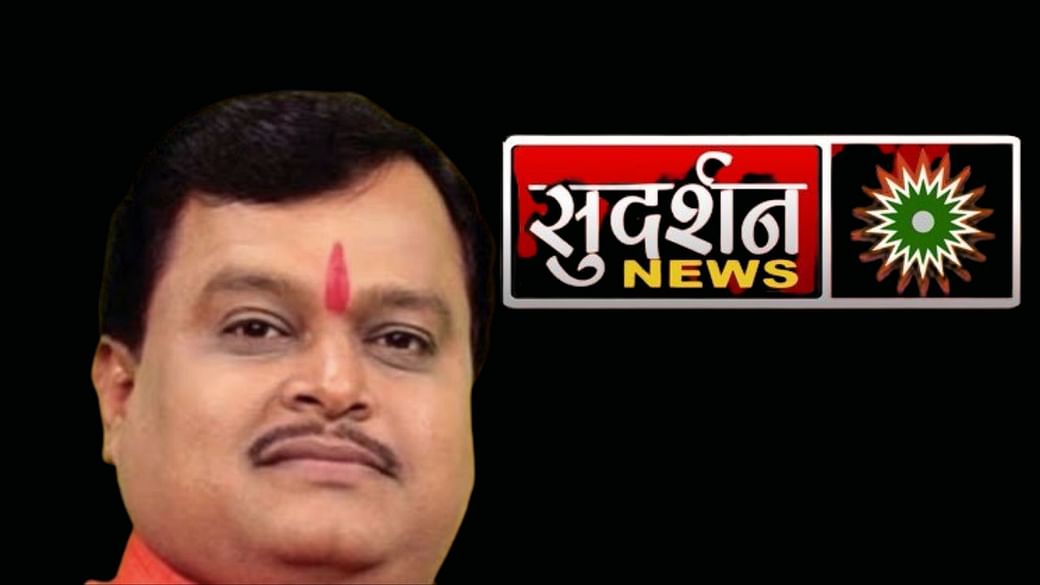
The three students of Jamia Millia Islamia University who had filed a petition before Delhi High Court for stay on broadcast of “Bindaas Bol” show of Sudarshan News on ‘UPSC Jihad’ have now intervened in the Supreme Court.
The intervention application, filed by Advocate Shadan Farasat, puts forth the statements made by Suresh Chavhanke, the Editor-in-Chief of Sudarshan News and also the host of the show, to show how they constitute hate speech. Further, it highlights how various TV news channels through their shows have propagated hatred against the Muslim community in recent times.
“The examples and reports clearly demonstrate that hate speech and discrimination against Muslims and religious minorities is a persistent and extremely widespread problem in the Indian broadcast news media landscape. Broadcasts of programs which openly peddle hate, discrimination and conspiracy theories, and incite hatred against inter alia Muslims, religious minorities and political dissenters among the general news-watching public,” states the application.
Restrictions on free speech
The intervenors then go on to highlight the constitutional and statutory restrictions on freedom of speech and expression, under Article 19(2) of the Constitution, various sections of the Cable TV Act as well as the Programme Code and Advertising Code, sections 153A (1), 153B(1) and 295A of the Indian Penal Code.
“Constitutionally permissible mechanisms for the regulation of the freedom of speech and expression are available through the Cable TV Act, read with the Cable Television Networks Rules 1994, and the Indian Penal Code. These restrictions include inter alia the imposition of a prior restraint by the Central Government on the broadcast programs that inter alia attack religions or incited hatred or otherwise violate the programme code,” state the intervenors.
Why Hate speech should be restricted
The intervenors state that, “Hate speech, or openly discriminatory speech, seeks to actively dehumanise certain groups and rob them of social, economic and political agency as well as dignity.” They have cited Pravasi Bhalai Sangathan v. Union of India [(2014) 11 SCC 477] wherein the apex court had observed,
“8. Hate speech is an effort to marginalise individuals based on their membership in a group. Using expression that exposes the group to hatred, hate speech seeks to delegitimise group members in the eyes of the majority, reducing their social standing and acceptance within society.”
“Hate speech does not just passively discriminate against people of a particular community but leads to actual discrimination against them with a view to curtailing their participation in social, economic and political life,” states the application.
The intervention application which precisely put forth the arguments how the show perpetrates hate towards the Muslim Community, the effects of the same on the society and why it needs to be stopped.
“Hate/openly derogatory and discriminatory speech also violates the right to reputation, which has been recognised as a part of the fundamental right to life and personal liberty under Article 21. The portrayal of Muslims and students from Jamia Millia Islamia as “jihadis” or terrorists/fifth columnists in the present instance has the effect of severely prejudicing the reputations of Muslims and Jamia Millia Islamia students who are civil servants or aspiring to be civil servants,” state the intervenors.
International jurisprudence
The International Criminal Tribunal for Rwanda had in Nahimana Et al (Media case) (ICTR-99-52) convicted Ferdinand Nahimana and Jean Bosco Barayagwiza, founders of Radio Télévision Libre des Mille Collines (RTLM) of genocide on account of the role played by the radio station in inciting hatred against Tutsis.
Suggestions to curb hate speech
The application calls for effective and transparent regulation through Cable TV Act and Cable Television Networks Rules, 1994. The intervenors also point out that how ineffective self-regulating bodies like the News Broadcasters Standards Authority (NBSA) are and suggests that “membership of a single independent voluntary organisation should be made an eligibility criterion for grant/continuation of a license to operate a television channel in India, so as to ensure that no broadcast television channel goes unregulated, and the public have recourse to an independent organisation to lodge complaints against the content of the broadcasts.”
Background
The Delhi high Court had granted stay on the telecast of the show on August 28 and had asked the Ministry of Information and Broadcasting to make a decision in regards to the many complaints being received against the show. But on September 9, the Ministry passed an order allowing the broadcast thus the channel, on September 11 started airing its episodes of the series of the show titled “Naukarshahi me Muslamano ki Ghuspaith ke shadyantra ka bada khulasa” (The conspiracy behind Muslim infiltration in UPSC – The Big Reveal). However, on September 15, the Supreme Court imposed a stay on the broadcast of the rest of the episodes which were slated to air until September 20.
Related:
NBA suggests making code of ethics binding on news channels to strengthen regulation
Sudarshan News cites NDTV’s ‘Hindu terror’ show, pleads for vacation of stay
Come back to us on a method to strengthen NBA : SC in Sudarshan News case